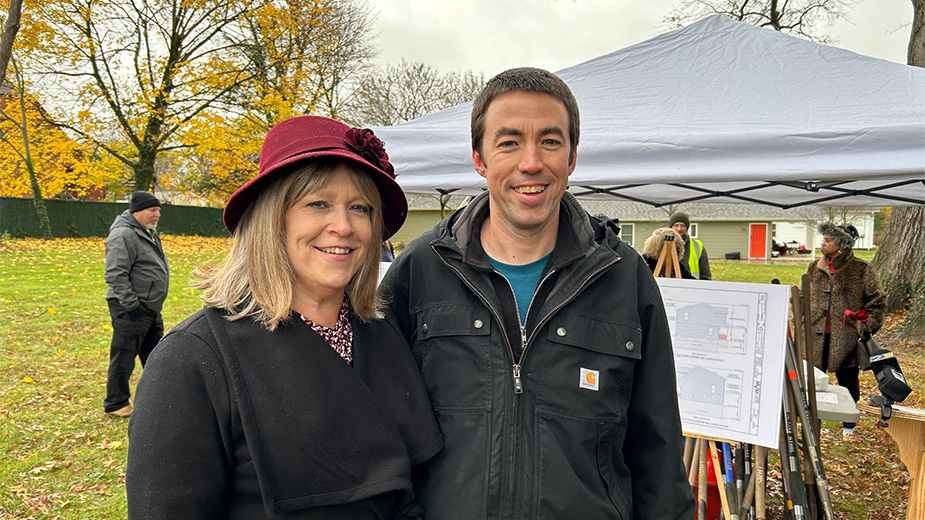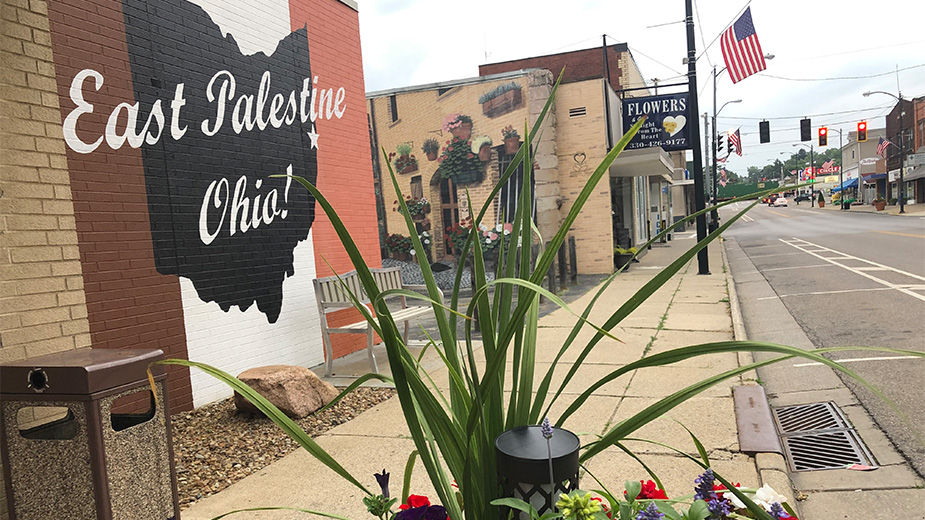Hermitage Becomes Commercial Hub with Business Growth
HERMITAGE, Pa. — The biggest change to business in Hermitage, Pa., over the past 30 or so years is that there’s any business at all.
Before incorporating as a city in 1976, Hermitage was rural with a few industrial endeavors such as coal mining or steel production.
“I remember when there were four, maybe five, businesses in Hermitage,” says Jim Sarvas, a real estate agent at Sebastian Real Estate in Hermitage and operator of Advertising & Business Consulting in Sharon. At most, he says, there were 10 commercial efforts.
“I lived just east of [state Route 18] and it was small,” he says. “It’s nice to see this growth and develop the way it has over the past few years.”
City Manager Gary Hinkson, a lifelong resident, echoes the sentiment, noting the variety of businesses is much greater than it was when Hermitage incorporated.
“Back in the ’70s and ’80s was the demise of a lot of heavy manufacturing in the region. Since then, the economy has come back, but it’s come back in a more diverse way,” Hinkson says. “There are smaller businesses and more of them. That’s made us stronger and it bodes well for the future.”
Among the small businesses are Kraynak’s, a flower store famous for its Easter and Christmas villages, and Combine Bros., an Italian restaurant south of the core business district that was established just as business began to boom. And although it was founded in Sharon, Reinhardt’s Insurance Agency recently moved its main office to a building in Hermitage, that site acquired through the purchase of another agency.
Gary Gulla, assistant city manager, says the growth of small and local businesses in the city has been balanced with larger-scale companies coming to the area that have strengthened the economy as a whole.
“We want to look for a little more of the same,” Gulla says. “We hope to continue to expand and diversify the commercial base while we support our local businesses, especially manufacturing, so they can grow and create more employment opportunities.”
That diversity, Gulla adds, can be seen in the city’s industrial park – where companies such as CCL Container, Interstate Chemical and Champion Carrier have located – and along its business district at the intersection of state Route 18 and U.S. Route 62, where almost every type of business can be found along a two- or three-mile stretch.
“We’re proud to be the commercial and retail center of Mercer County,” Gulla says.
Becoming the commercial hub of Mercer County has put Hermitage “in the captain’s seat,” according to Randy Seitz, president and CEO of Penn Northwest Development Corp.
“Because of the amenities and assets the city has, any location in Hermitage can be appealing to a diverse group of companies,” Seitz says. “They’re equally attractive to commercial development, retail development, health-care and industrial development. I can see more retail growth, more commercial growth, more medical growth, more industrial growth.”
At the intersection of routes 18 and 62, it’s hard to imagine any more businesses squeezing into the already crowded corridors. On the northeast corner is the Shenango Valley Mall, home to 35 stores, mostly chains. Strip plazas post neon signs for restaurants, shoe stores, cell phone carriers, clothiers and other lines of business.
Going from the main intersection, heading east or west on Route 62, the businesses and retailers occupy smaller offices: banks, insurance agencies, family-owned diners and a few specialty shops.
Fostering a new business climate, one that focuses mostly on technological companies, is the eCenter@LindenPointe. Since opening in 2011, the eCenter has become home to nine startups and has graduated four more. Executive director Yvonne English says Hermitage’s diverse economy is a result of work at all levels of city government.
“Hermitage is a progressive community that has taken the necessary actions to attract and retain businesses,” she says. “I have absolutely seen a change in the economic climate in the city as we started to see the dividends of the city’s vision and action plan. Hermitage is a place where businesses can start and thrive within a supportive community.”
Others also praise what the city of Hermitage has done to attract new businesses and develop small businesses.
“It’s very easy to do business in Hermitage. The people with the city are easy to get along with and very pro-business,” says Scott Kirschler, general manager of the Samuel, Son & Co. operation in the industrial park. “I’ve seen businesses grow, whether it’s with restaurants or national chains. Something as simple as having a Home Depot or Chipotle in town has been great. But also seeing the infrastructure improve as well has definitely helped our business.”
Samuel, Son & Co. with its headquarters in Canada, manufactures metal products that range from rolled carbon steel to aluminum rods to copper extrusions. The Hermitage operation is one of 15 of the company’s eastern United States service centers.
Kirschler affirms his company’s dedication to the city by saying plans for an expansion and hiring more employees are in the works. “We’re investing more and more money into our facilities here,” he says. “We’re looking at hiring additional people and purchasing new equipment. We’re here for the long haul.”
Robert Hill, president of Solar Atmospheres of Western Pennsylvania, a vacuum heat treating and brazing company that works with manufacturers, says that among all of Solar Atmospheres’ locations, Hermitage is the best to work with, beating out company sites in sites such as Fontana, Calif., and Souderton, Pa.
“The city has been good to us. They’re very business-friendly. We have other plants around the country and Hermitage is the easiest to work with that I’ve seen,” he says.
And at Joy Cone, the largest producer of ice cream cones in the world, President David George says the city has always been willing to help with any issues his company has, especially expansion.
“While we’ve been successful, there are standards the city has that we need to follow to minimize our impact on the neighborhood. The city has really good standards to protect neighbors, but they’ve always been cooperative in helping us follow those and thrive,” he says. “There’s excellent leadership, which helps with infrastructure and finding spots for businesses to grow. I’m high on the area and western Pennsylvania in general.”
Over the past decade, Joy Cone has expanded its operations here three times and today features a 500,000-square-foot floor with two production lines and an on-site warehouse between them.
Being so close to major highways – Interstates 376 and 79 are nearby – is attractive for many of the manufacturers and industrial businesses in Hermitage. George notes that almost any company that needs to ship products would be hard pressed to find a better location than Hermitage.
“Geographically, Hermitage is a great area because we’re a few minutes away from I-80 running east and west, I-79 running north and south,” he says. “We’re halfway between New York and Chicago. This is a good place to be for anyone shipping across the United States.”
While the steel industry is no longer the largest employer in the area, George points out that its effects are still seen in the workforce. Workers at Joy Cone, which employs about 400, hold the blue-collar work ethic from the generations before them.
“We feel it’s our best asset here. There’s a strong work ethic from the steel mills. People are used to working for companies that run 24 hours a day, seven days a week,” he says. “That work ethic has helped us, along with a good skilled labor force.”
Also helping attract businesses to the city is the price of property, according to Sebastian Real Estate owner Don Sebastian.
“Prices are reasonable in Hermitage. They’re similar to what you’d find in a similar developing city like Youngstown. The prices are consistent throughout the area,” he says, noting that most of the big properties these days are being bought by companies in the oil and gas industry.
Sebastian says commercial and warehouse properties tend to go for between $2.50 and $3 per square foot while office space runs between $9 and $10 per square foot.
“We’ve been working with selling office buildings and setting up locations for oil companies,” Sebastian says. “Aside from that, it’s been leasing a small office here and a small office there.”
Over the years, business across all sectors has taken off but mostly in two areas of the city: the intersection of 18 and 62 and an industrial park on Broadway Avenue not far from the Route 18 interchange with I-80.
Those areas will continue to grow, Sarvas says.
“It’s primarily happening in high-traffic areas and that’s how it is in most communities,” he explains. “That’s where people want to be if you start a business, the area where you can reach the most people you can.”
The city’s Hinkson and Gulla emphasize that in addition to the business amenities the city can offer, Hermitage offers a good quality of life for those who settle down here.
Last summer, CreditDonkey named Hermitage the best city to live in Pennsylvania. Since then, the city has used the ranking to brand and market itself in hopes of attracting new businesses.
“It’s not an easy thing to measure [if businesses take notice of the ranking], but we are taking advantage of that designation in our marketing. We certainly hope that it will draw attention to the area and get people to come here,” Hinkson, the city manager, says. “[The businesses that see that are] very important because they’re creating family-sustaining jobs.”
Editor’s Note: Our Towns: Hermitage” video series begins Tuesday on the DailyBUZZ webcast.
Copyright 2024 The Business Journal, Youngstown, Ohio.



